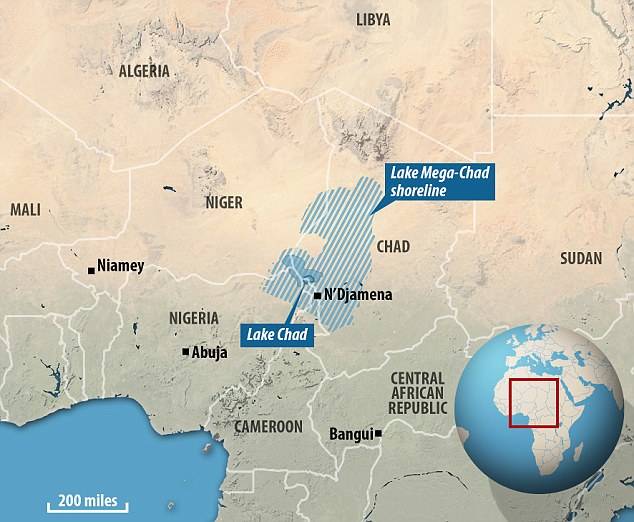Wyatt earp
Diamond Member
- Apr 21, 2012
- 69,975
- 16,383
- 2,180
World's biggest lake drys up in only 200 years..
It's soooooo fun to use science against the AGW cult
Scientists discover Sahara Desert contained the world’s largest lake named Mega Chad | Daily Mail Online
Scientists discover Sahara Desert contained the world's largest lake named Mega Chad until it evaporated in just a few hundred years
A reconstructed lake level history for the ancient Lake Mega-Chad, once the largest lake in Africa, suggests that a North African humid period, with increased precipitation in the Sahara region, ended abruptly around 5,000 years ago, and that the lake’s Bodélé basin, now a large source of atmospheric dust, may not have dried out until around 1,000 years ago,' the team wrote.
But the researchers' discovery shows this fertilisation could only have happened 1,000 years ago – leaving a riddle as to how the jungle received vital nutrients before then.
The researchers found that the change took place in just a few hundred years – much more quickly than previously considered.
It's soooooo fun to use science against the AGW cult
Scientists discover Sahara Desert contained the world’s largest lake named Mega Chad | Daily Mail Online
Scientists discover Sahara Desert contained the world's largest lake named Mega Chad until it evaporated in just a few hundred years
- Mega Chad covered 139,000 sq miles of Central Africa but rapidly shrunk
- Researchers found that the change took place in just a few hundred years
- Dust from dried-up lake blows across the Atlantic to fertilise the Amazon
- Lake now 137 sq miles, crossing into Chad, Niger, Nigeria and Cameroon
A reconstructed lake level history for the ancient Lake Mega-Chad, once the largest lake in Africa, suggests that a North African humid period, with increased precipitation in the Sahara region, ended abruptly around 5,000 years ago, and that the lake’s Bodélé basin, now a large source of atmospheric dust, may not have dried out until around 1,000 years ago,' the team wrote.
But the researchers' discovery shows this fertilisation could only have happened 1,000 years ago – leaving a riddle as to how the jungle received vital nutrients before then.
The researchers found that the change took place in just a few hundred years – much more quickly than previously considered.




